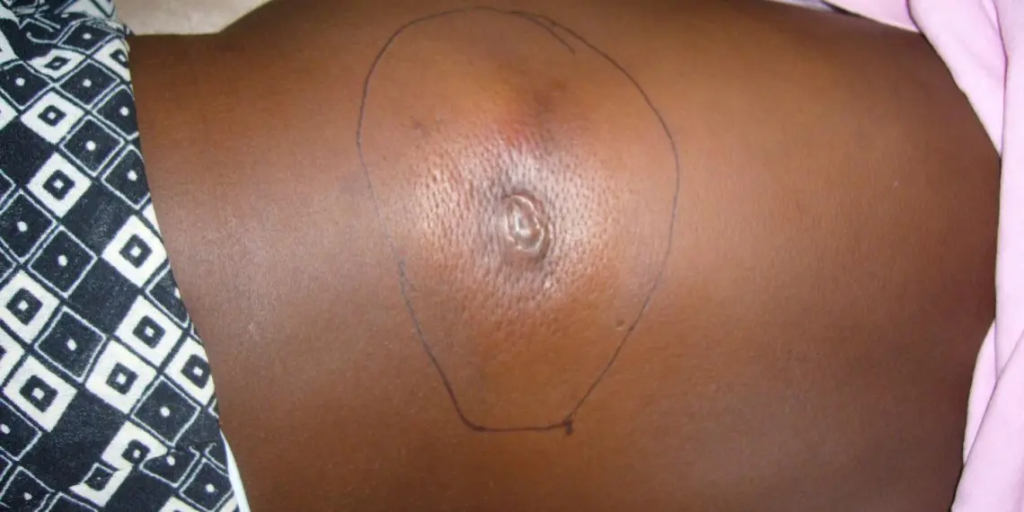
Buruli Ulcer (PHOTO CREDIT: afro.who.int)
The Federal Government says it is still investigating the exact cause of a mysterious flesh-eating disease that has claimed at least seven lives in Malabu, Adamawa State. Officials suspect Buruli Ulcer, a neglected tropical disease caused by Mycobacterium ulcerans, but laboratory confirmation is ongoing.
According to the Acting National Coordinator of the National Tuberculosis, Buruli Ulcer and Leprosy Control Programme, Adesigbin Olufemi, 67 cases have been confirmed as of 10 September. Eight severe patients are undergoing surgery at Modibbo Adama University Teaching Hospital (MAUTH), Yola, with support from federal agencies.
Mr. Olufemi explained that the disease often begins as a boil, which bursts and gradually eats away the flesh, sometimes damaging bones. He emphasised that coordinated efforts are underway to manage the outbreak in affected communities.
While the exact cause is not yet established, health officials suspect Buruli Ulcer, a disease linked to swampy and stagnant water environments. Transmission is still poorly understood, but theories suggest insects like mosquitoes or water fleas may inoculate the bacteria during bites.
“The tropical disease is still under investigation for confirmation,” Mr. Olufemi said, noting that the World Health Organisation lists Buruli Ulcer among neglected tropical diseases mainly affecting rural riverine communities.
Public education is a key part of the response. Some residents initially blamed the disease on witchcraft, delaying treatment. Mr. Olufemi urged early medical attention to improve outcomes.
Malabu, located about two hours from Yola with poor road access, poses logistical challenges for health workers. Mild cases are being treated at local health centres while severe cases are transferred to teaching hospitals.
The coordinator highlighted the role of clean water and sanitation in preventing future outbreaks. “People will not need to go to those rivers to fetch water if they have pipe-borne or borehole water around them. That way, they are less exposed,” he explained.